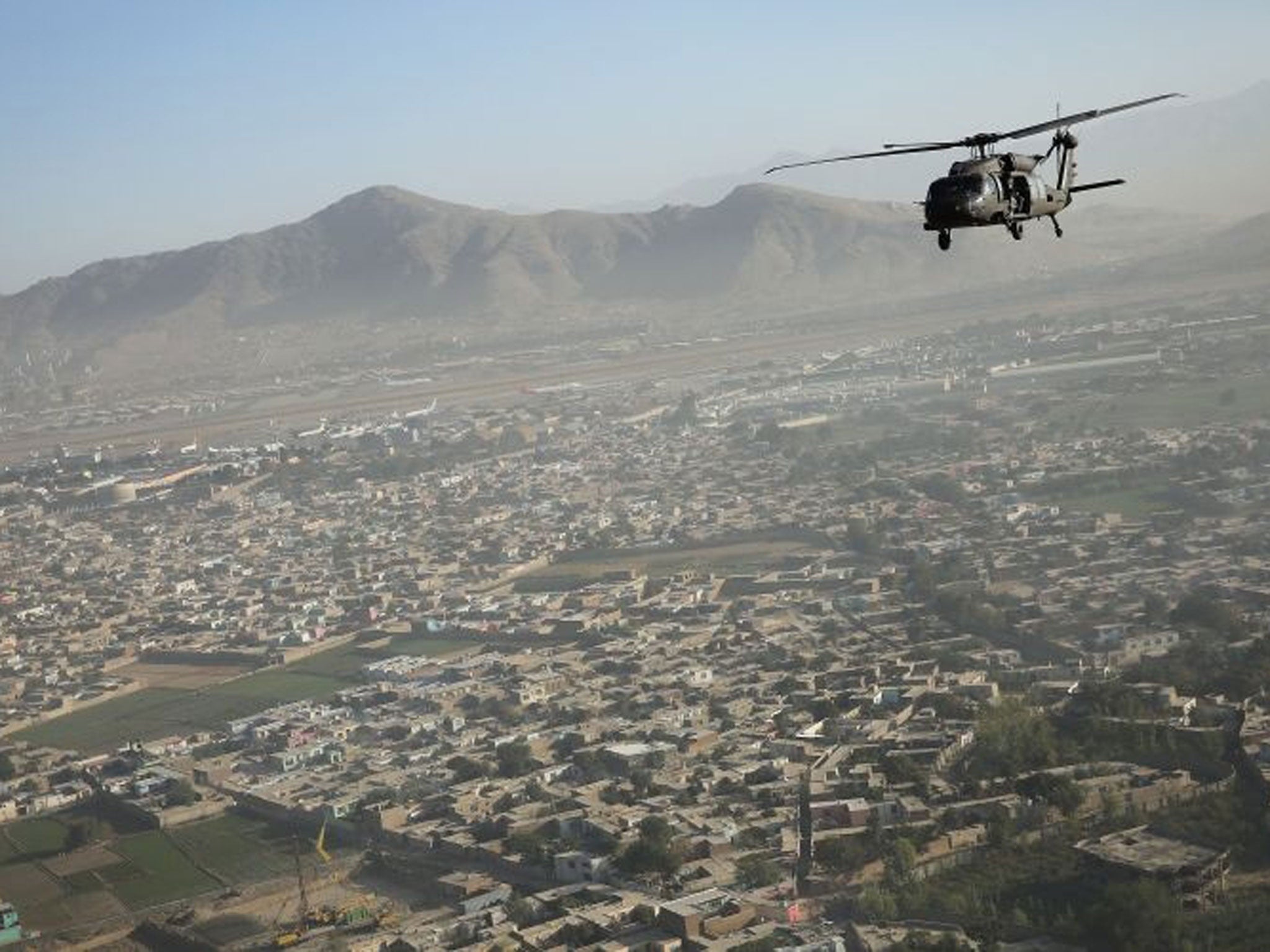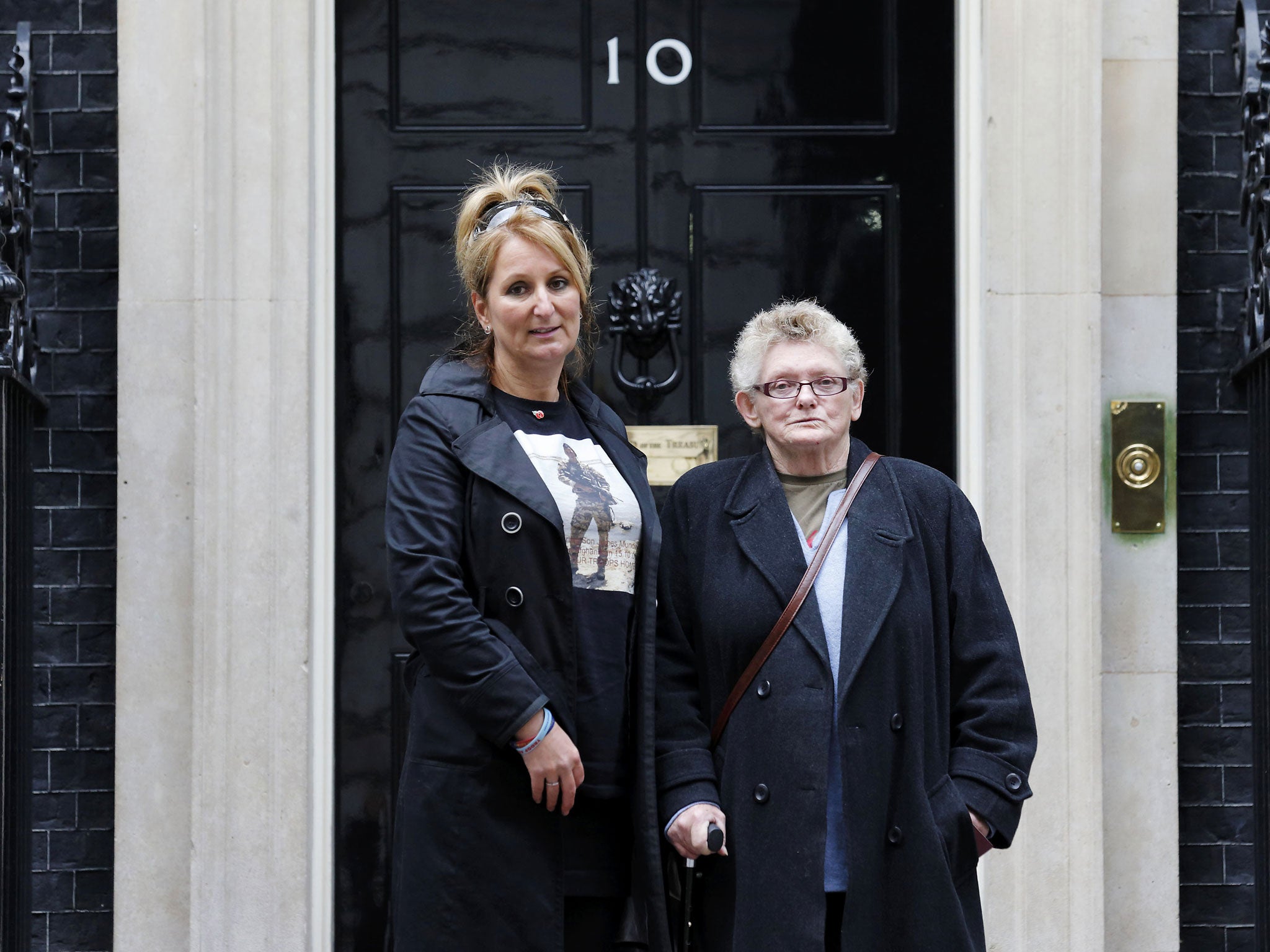Families of soldiers who died in Afghanistan say their loved ones lost their lives for nothing
"It's been a total waste of British lives, Afghan lives, American lives," said the grandmother of a soldier who died in action

Your support helps us to tell the story
From reproductive rights to climate change to Big Tech, The Independent is on the ground when the story is developing. Whether it's investigating the financials of Elon Musk's pro-Trump PAC or producing our latest documentary, 'The A Word', which shines a light on the American women fighting for reproductive rights, we know how important it is to parse out the facts from the messaging.
At such a critical moment in US history, we need reporters on the ground. Your donation allows us to keep sending journalists to speak to both sides of the story.
The Independent is trusted by Americans across the entire political spectrum. And unlike many other quality news outlets, we choose not to lock Americans out of our reporting and analysis with paywalls. We believe quality journalism should be available to everyone, paid for by those who can afford it.
Your support makes all the difference.As David Cameron visited Afghanistan and declared there was no prospect of UK troops returning to fight there, the families of soldiers killed in the conflict say it has all been for nothing.
Speaking to British troops at Camp Bastion, the Prime Minister thanked soldiers and acknowledged that the armed forces had paid a "very high price" for bringing "stability" to the country over the past 13 years.
But bereaved relatives have said that any improvement seen in the country would "come unglued", and the lives of 400 British soldiers who died in the war have gone to waste.
Joan Humphreys, an outspoken campaigner against the war, lost her grandson in Afghanistan in 2009. The 69-year-old from Dundee said that British forces had not achieved anything in the Middle Eastern country.
Private Kevin Elliott, 24, of The Black Watch, 3rd Battalion The Royal Regiment of Scotland, died alongside Sergeant Stuart Millar, 40, in an explosion while on foot patrol in southern Helmand on August 31 2009.
"In my opinion we should never have been there in the first place. I don't think we've achieved anything, I don't think there's an improvement,” she said, and added that while there appears to be an improvement in Kabul, nothing has changed in other areas.

And although families would always be proud of their loved ones, she said many felt they had "died for nothing".
"I was very proud of my grandson but never proud of him being a soldier, never proud of his involvement in the military. I supported him, of course I did, but I wasn't happy with him being there."
She added that the Taliban remain, and Al Qaida is likely to return to the embattled country.
"It's been a total waste of British lives, Afghan lives, American lives," she said, and went on to criticise politicians who initiated the war, claiming they have forgotten that Britain is not the power it once was.
"We should just stay back and if the Americans want to go in, let them go ahead, but don't put our servicemen in there."
"We should never have been there and when people say it's a job well done, it's just unbelievably crass. There's no consideration for the families."

Tony Philippson’s Paratrooper son Captain James Philippson died in a firefight in June 2006, making him one of the first British soldiers to die in the conflict. He echoed Mrs Humphrey's sentiments, and said that while his son wanted to fight in Afghanistan, he never believed the mission would succeed.
"Though my son wouldn't have missed going there for the world, he didn't believe for one minute it was either worth doing or that we would succeed," said Mr Philippson, 73, from St Albans, Hertfordshire.
"But he wouldn't miss it. He joined the Marines and then the Paras because that was where the action was.
"He knew it was for nothing but I couldn't stop him from going because he wanted to do some soldiering. It was his decision, he was the one who was willing to take the risk."
"He didn't think it was worth doing, just simply because of the cost, of human life and in dollars and pounds.
"What have they achieved?" he asked. “For the moment they think they have achieved a lot, but they haven't.“
He predicted that the small improvements made in Afghanistan, such as women being able to go to school, would "all come unglued in the end."
Additional reporting by AP
Subscribe to Independent Premium to bookmark this article
Want to bookmark your favourite articles and stories to read or reference later? Start your Independent Premium subscription today.
Join our commenting forum
Join thought-provoking conversations, follow other Independent readers and see their replies
Comments